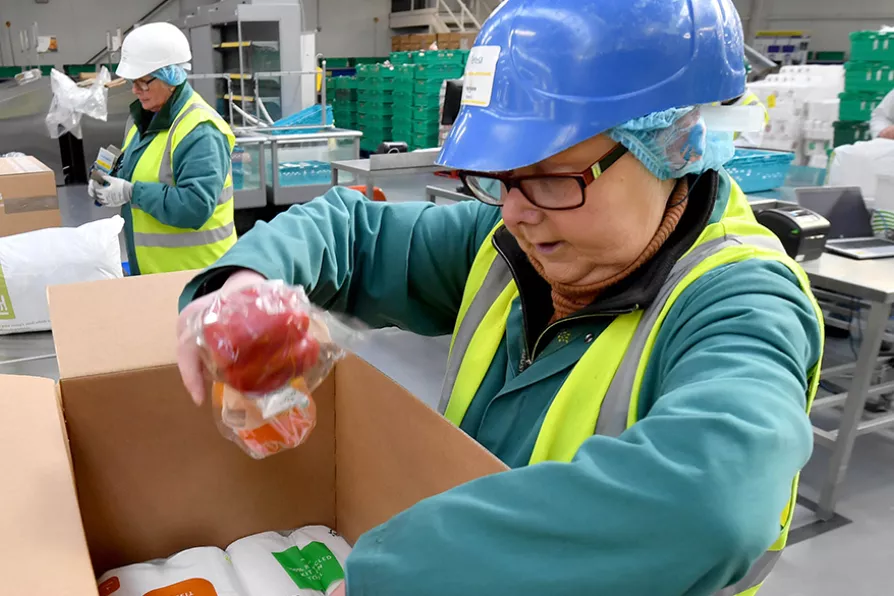This weekend, the NEU holds a special conference to debate changing its approach to organising teaching assistants, which a 2017 TUC agreement forbids. General secretary DANIEL KEBEDE outlines the choices before delegates
Why we’re calling for a ‘right to food’ to be enshrined in law
Bakers’ union leader SARAH WOOLLEY explains how the BFAWU is fighting to end the scourge of food poverty in communities and workplaces across the country

 UNION CONCERN: Staff pack delivery boxes at Morrisons food packaging plant in Bradford
UNION CONCERN: Staff pack delivery boxes at Morrisons food packaging plant in Bradford
THROUGHOUT the coronavirus crisis, every worker across the food sectors has provided a vital contribution to feeding the nation. Their work has been essential in keeping our country going during this pandemic.
Yet despite working day and night, seven days a week, 52 weeks a year and across the length and breadth of the country, many food workers are shamefully being priced out of the very products they produce.
The cause of the country’s food poverty scandal is not a lack of food to go round.
Similar stories

BFAWU general secretary SARAH WOOLLEY highlights a catalogue of health and safety failings at the Mowi fish processing plant in Fife

RMT leader Eddie Dempsey's stark warning shook up a fringe meeting at the Scottish TUC












